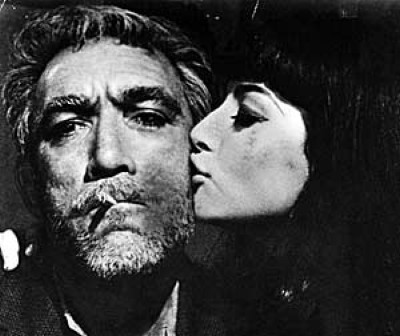
Here is some wisdom of Zorba.
"I tell you, boss, everything that happens in this world is unjust, unjust, unjust. I won't be party to it! I, Zorba, the worm, the slug! Why must the young die and the old wrecks go on living? Why do little children die? I had a boy once - Dimitri he was called - and I lost him when he was three years old. Well ... I shall never, never forgive God for that, do you hear? I tell you, the day I die, if He has the cheek to appear in front of me, and if He is really and truly a God, He'll be ashamed! Yes, yes, He'll be ashamed to show himself to Zorba, the slug!"
... and more ...
"The unfailing rhythms of the seasons, the ever-turning wheel of life, the four facets of the earth which are lit in turn by the sun, the passing of life - all of these filled me once more with a feeling of oppression. Once more there sounded within me, together with the cranes' cry, the terrible warning that there is only one life for all men, that there is no other and that all that can be enjoyed must be enjoyed here. In eternity no other chance will be given us.
A mind hearing this pitiless warning - a warning which, at the same time, is so compassionate - would decide to conquer it weakness and meanness, its laziness and vain hopes and cling with all its power to every second which flies away for ever."
It is not the easiest book to read and tends to meander in places but perhaps Kazantzakis was trying to echo the pace of Greek life. However, for those of you with reflective souls I would encourage you to read this classic.
For more information ...
Zorba - wikipedia
Zorba - the movie
No comments:
Post a Comment